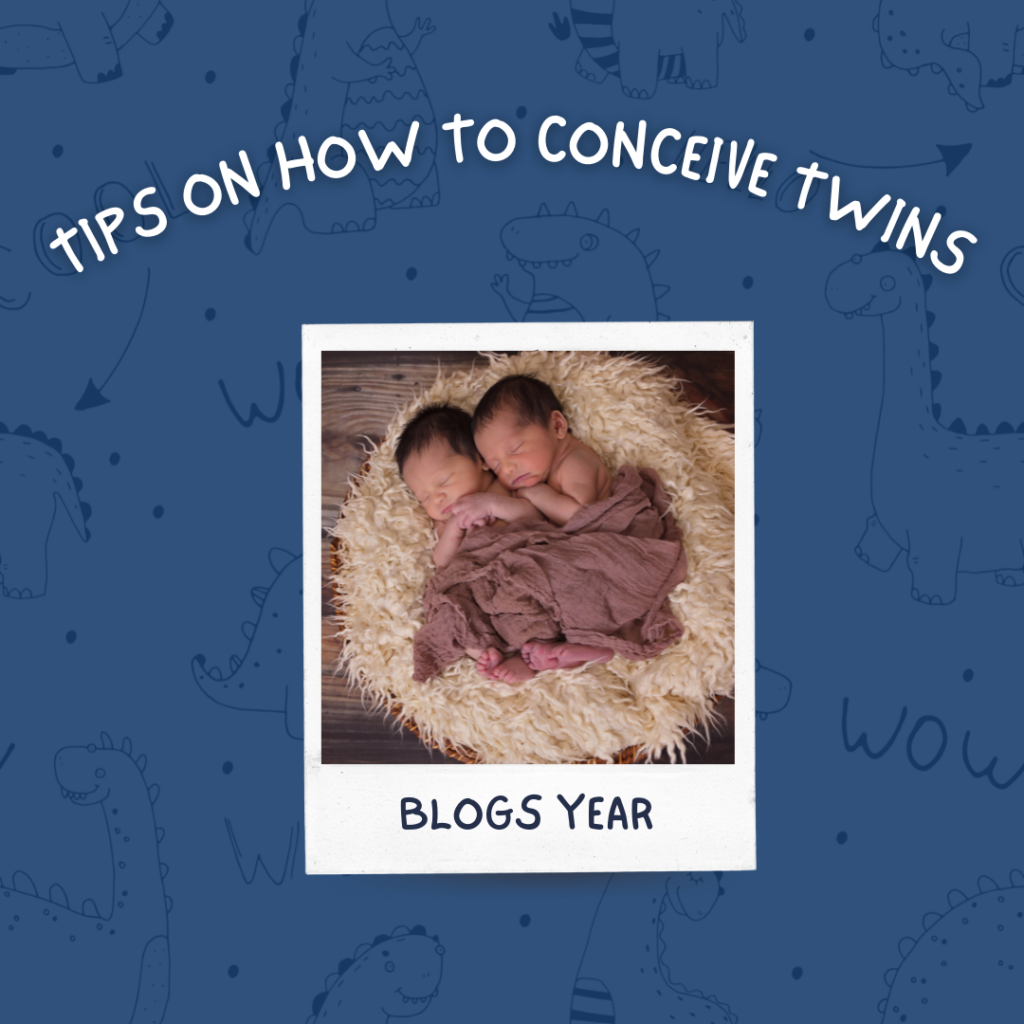Tips on How to Conceive Twins

How to have twins is a common question among those trying to conceive. Whether or not you want to have twins, it’s useful to know what increases your chance of being pregnant numerous times. While some factors may boost your risk of having twins, there are no guarantees, and most women will still give birth to a singleton pregnancy no matter what they do.
Also Read: –Care Of The Baby In The Delivery Room- Tips
The likelihood of having multiples increases when using fertility drugs like Clomid (clomiphene), Gonal-F (follitropin alfa), and Follistim (follitropin beta). However, other elements like your height, age, diet, and family history might also boost (or lower) your chance of conceiving multiple children at once. Find out more about the factors that make twin pregnancies more likely.
How Often Do Twins Occur?
In 2019, there were 120,291 twin births in the United States, per the Centers for Disease Control and Prevention (CDC) birth data. That translates to 32.1 twins per 1,000 live births, or roughly 3.21% of live births. In the same year, there were 3,136 triplet births and only 150 quadruplet and higher-order births. Both naturally occurring multiples and those born through fertility treatment are included in these figures.
Identical twin pregnancies happen 1 in 250 times or 0.45% of the time in the general population. Having twins is more likely if you have fertility aid because the rates are double that if you use fertility treatments. Using reproductive treatments enhances your chance of getting identical twins, even though fraternal twins make up the majority of multiple babies conceived through fertility procedures.
Factors Increasing the Chances of Twins
Most individuals are aware that twin pregnancies are more common when fertility medications are used. However, there are other factors contributing to the rise of twin and higher-order pregnancies than reproductive therapies. The additional elements that raise your likelihood of becoming pregnant with multiples are listed below.
Age
Twin pregnancies are more common in women over 30, and notably in those over 35. This is due to the fact that as birthing parents age, their levels of follicle-stimulating hormone (FSH) increase. Before eggs are discharged from the ovaries, they develop there thanks to FSH.
People need more FSH as they get older because their eggs need more stimulation to expand than they did when they were younger. Multiple pregnancies can occur when the follicles overreact to elevated FSH levels, releasing two or more eggs that are then fertilised.
Family Background
Although the children of male identical twins may be more likely to have their own identical twins, a family history of identical twins does not guarantee that you will have multiples. However, your chances of conceiving twins increase if you have fraternal twins (non-identical) in your family. Your chances of having twins increase even further if either of your parents, or the egg or sperm donor, has fraternal twins.
Weight
Twins are more likely to be conceived in heavier people than in lighter people. Extra body fat normally causes oestrogen levels to rise, and higher oestrogen levels can cause the ovaries to become overstimulated. At ovulation, the ovaries may produce two or more eggs instead of simply one. While there may be a higher chance of having twins, being overweight can also make it more challenging to get pregnant overall.
Height
Twin pregnancies are more common in people who are taller than average. According to one study, women who are on average 164.8 cm tall (about 5’4.8″) are more likely to have twins than women who are on average 161.8 cm tall (approximately 5’3.7″). Although the exact cause of this is unknown, one idea holds that the rise in the number of twins may be partially attributed to better nutrition, which may enhance height.
Diet
Your odds of having twins may also be impacted by the specific foods you consume or avoid. Some studies have shown that persons who consume a lot of dairy products are more likely to have twins, while more research is needed in this area.
According to one study, vegans only have multiple births 20% as frequently as people who consume dairy, making them substantially less likely to have twins. Diets containing dairy products, particularly in regions where cattle are fed growth hormone, “appear to raise the probability of multiple pregnancies due to ovarian stimulation,” according to the study’s authors.
Another study discovered a link between consuming yams and having more twins. It is hypothesised that eating yams may also encourage repeated ovulation, similar to the effects of consuming dairy.
Breastfeeding
Twin pregnancies are more common in nursing mothers than in non-breastfeeding mothers. It is true that nursing, particularly when a kid is exclusively breastfed for the first six months, might reduce fertility and prevent pregnancy. But it is possible to become pregnant while nursing, even with twins!
Summary
There is no way to raise the likelihood of naturally occurring twins, despite the fact that some circumstances can increase the likelihood of twins. Early in her pregnancy, an ultrasound is typically how a woman learns she is expecting twins.
More severe morning sickness and a very quick weight gain are a few of signs that a woman may be expecting twins. Attending your doctor on a regular basis will increase your chances of having a healthy baby.








